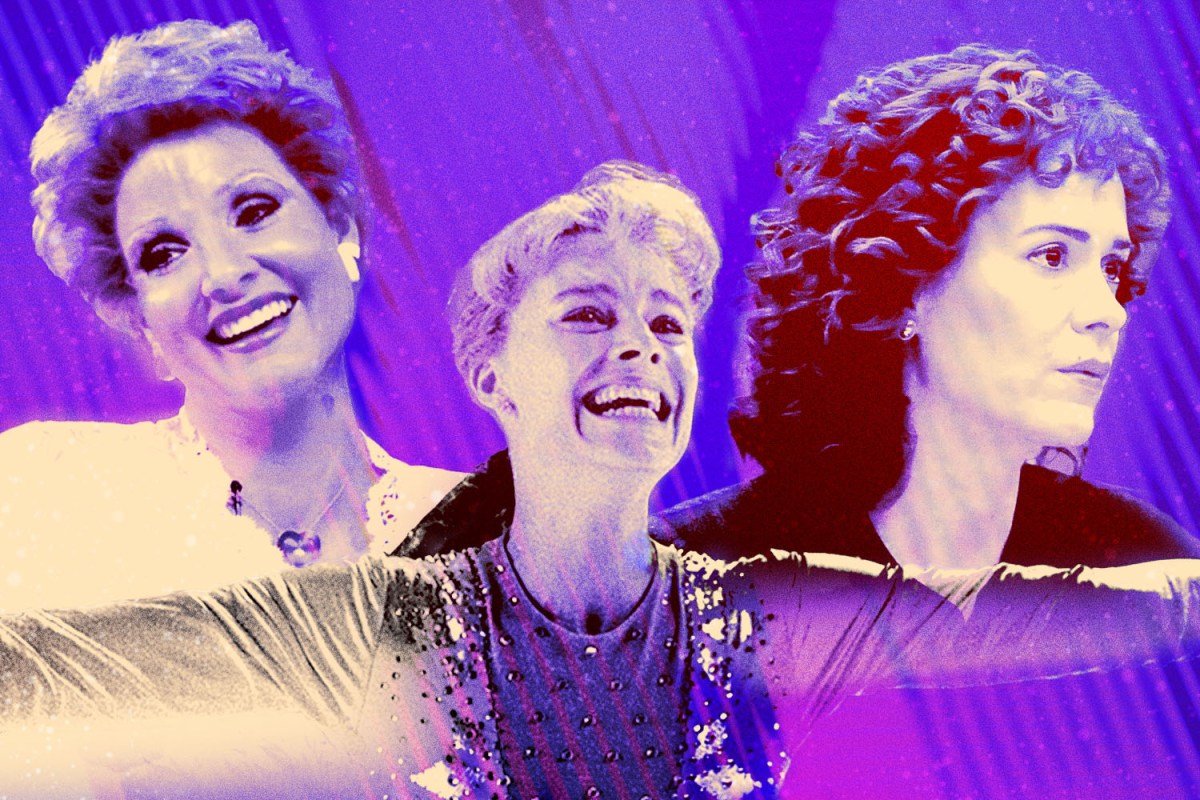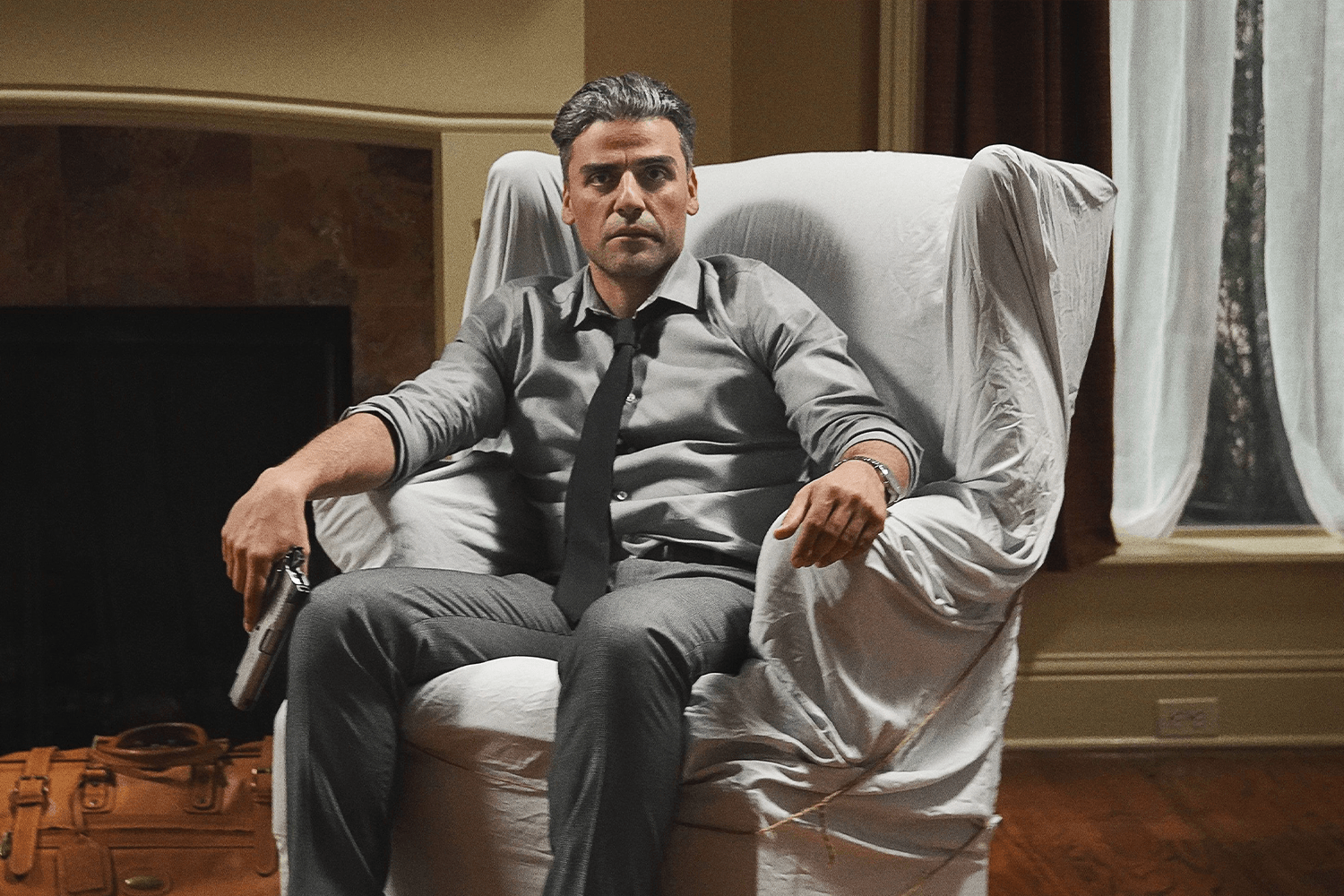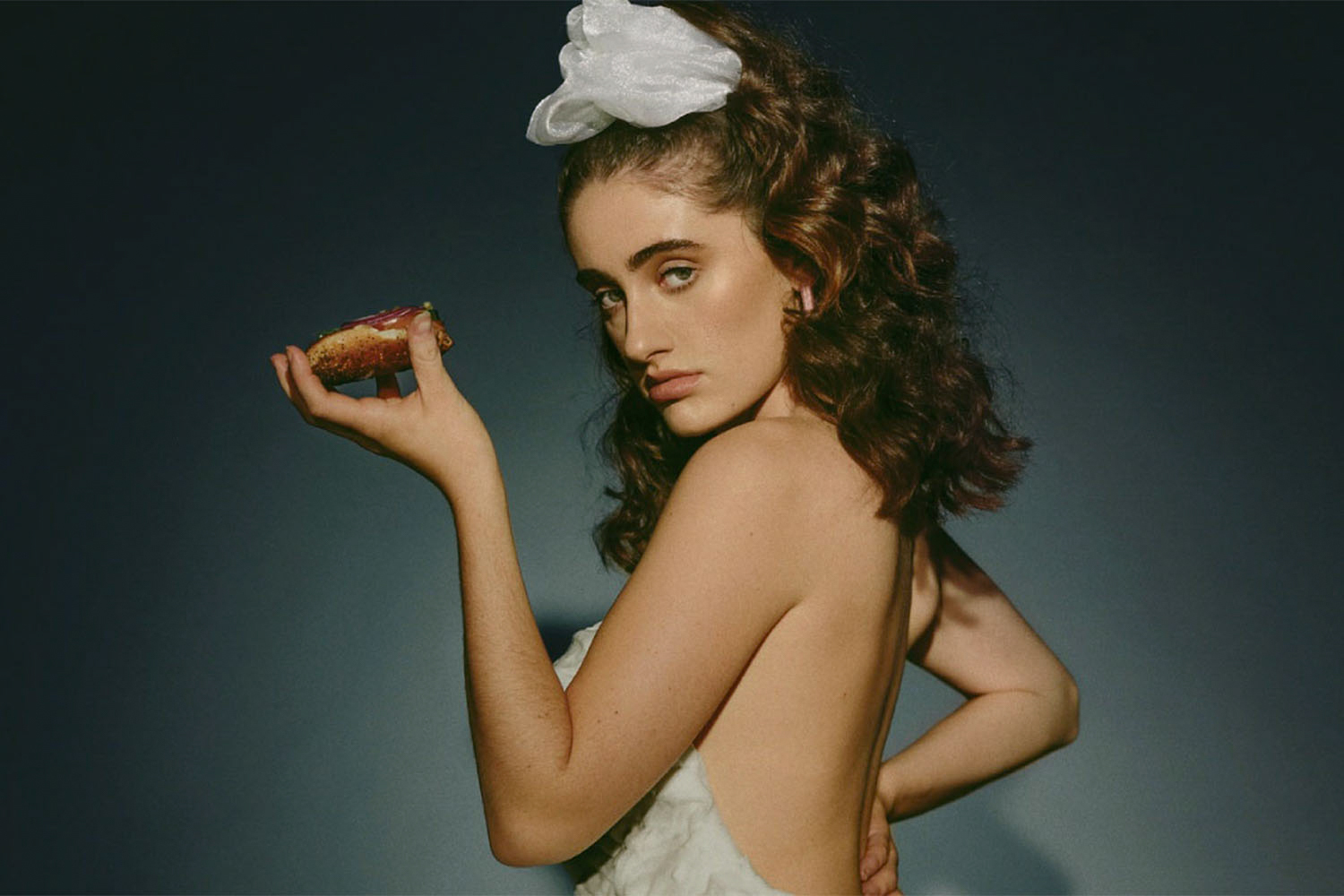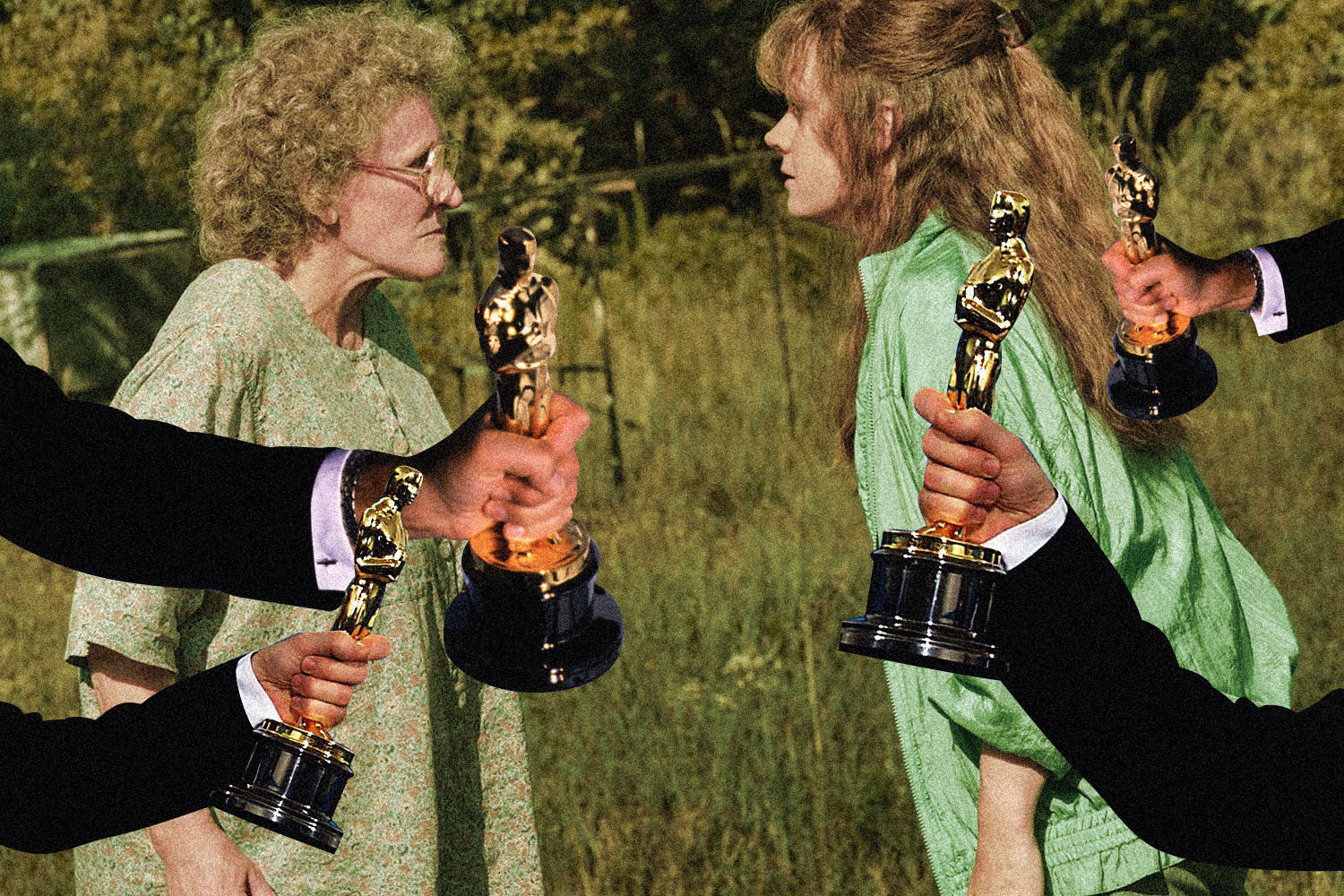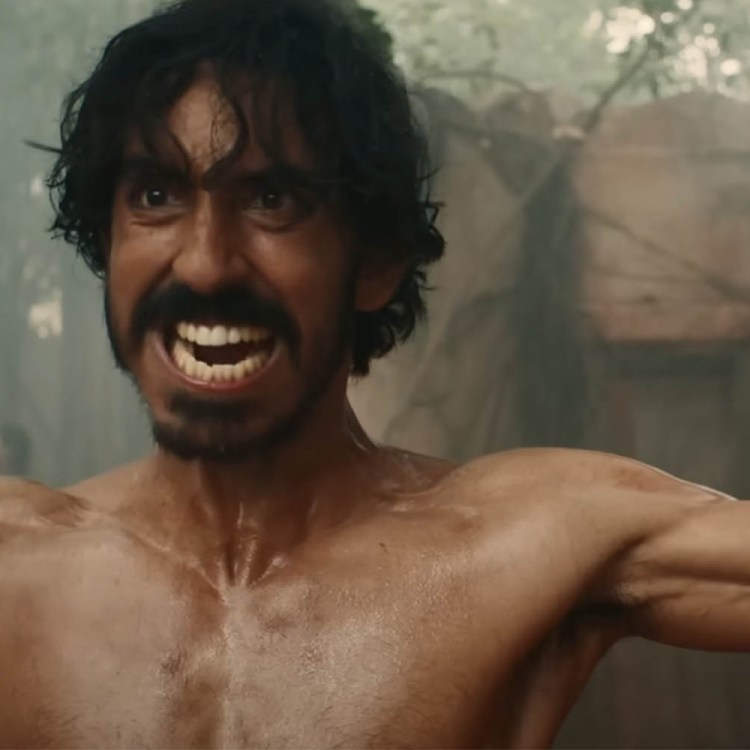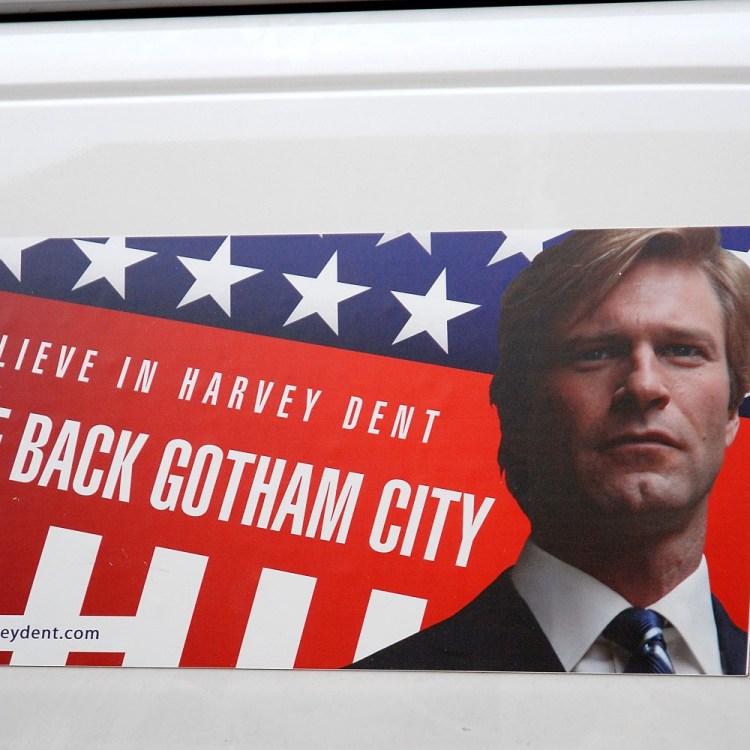The new film The Eyes of Tammy Faye opens on its title character in the hair-and-makeup chair, prepping for an appearance on camera. The extreme close-up reveals just how heavily done-up televangelist Tammy Faye Bakker already is by the time she arrives on set, a fact affirmed by an exchange with the stylist, who remarks that she’s got a look all her own. Her coiffure has been so shocked with hairspray that it looks like you could knock on it, her complexion is hidden beneath a dense frosting of foundation and rouge, and her eyelids have been tattooed with a permanent liner. To us, she makes for a magnificently tacky parody of ‘80s glamour, and in her own estimation, she’s something like a god-fearing Vanna White. Either way, this is how her fans know her, and so that’s how they expect to see her, she explains. She has an outward-facing profile and knows it, an image she’s so wedded to that she’s opted to stop washing it off in her private moments.
The Michael Showalter-directed biopic, spearheaded more so by producer and star Jessica Chastain, exists to expose the woman underneath the couture and cosmetics. At the height of her relevance, the media made her a laughingstock for her ostentatious taste, amazingly bad Christ-gone-disco anthems and the eventual fraud lawsuits that cast she and husband Jim as greedy hucksters conning honest Christians out of their paychecks. Abe Sylvia’s script instead places its focus on the nobler, more defensible aspects of Tammy Faye’s story, such as her earnest desire to spread the Almighty’s love and her party-line-flouting defense of the queer community during the thick of the AIDS epidemic. She wasn’t all that awful, we’re assured, just overly pliable, in thrall to a husband who used her for his own avaricious purposes.
After more than a decade stuck in development hell, Chastain’s passion project arrives amidst a wave of like-minded films extending PR rehab to figures they argue have been wrongfully maligned, mocked or minimized. The You’re Wrong About–ification of the cinematic character piece is in full swing, Hollywood following the example of a popular podcast dedicated to rewriting the narrative on people and events misunderstood in our collective memory. In a pair of typical episodes, penis-severer Lorena Bobbitt and bubbleheaded hottie Anna Nicole Smith were reappraised as a defiant survivor of abuse and a self-made icon of Americana, respectively. (Tammy Faye shared an installment with Jessica Hahn, who accused Jim Bakker of rape in 1987.) Now the movies have adopted this critical, often feminist-leaning realignment of empathies. But while some examples simplify the moral calculus involved to black-and-white, others get lost in their shades of grey.
The recent real-life reckoning over TV and tabloid treatment of Britney Spears, to name just one example, has played out over and over again in creative terms on the big screen. These films take care to consider the humanity of late-night punchlines, looking beyond the coverage to locate something worthy of our compassion. This generally hinges on realigning our notion of a previously under-examined dimension to a scandal; I, Tonya, its awards-season success perhaps the setter of this trend, emphasized the class disparity that made America all too eager to cast figure skater Tonya Harding as the villain in rival Nancy Harding’s kneecapping. Directed by Craig Gillespie (who’d later find the softer side of a serial Dalmatian murderer with Cruella), the film also shifted the lion’s share of blame back to a malicious husband after he attempted to shuffle his misdeeds onto his wife.
Imbalanced power dynamics form a constant through much of this mini-canon, challenging viewers to place perpetrator-victim dichotomies in new contexts. 2019’s Seberg chronicled the conflict between French film icon Jean Seberg (Kristen Stewart) and the FBI through the ‘60s and ‘70s, in which one of the planet’s most powerful intelligence agencies wire-tapped, smeared and sabotaged a private citizen until she sent herself to an early grave. Charlie Says likewise flips the script on the Manson girls, their dark deeds suggested as the result of brainwashing and manipulation from an almost hypnotically influential man. In Lucy in the Sky, Natalie Portman plays Lisa “Diaper Astronaut” Nowak as a driven career woman undone by her misused attraction to a fellow NASA employee who doesn’t give a second thought about striking up an affair with her before casting her aside for a younger woman. In each case, the main character comes off looking like a casualty of circumstance, their lamentable actions a direct response to a world stacked against them, usually by the opposite sex.
When the stakes sink below the life-and-death line, this narrative form turns into an exercise in respect and dignity, focusing on basic decency rather than righteousness. O.J. Simpson prosecutor Marcia Clark and former White House intern Monica Lewinsky got their day in the court of public opinion with the first and third seasons of TV’s American Crime Story, which showed the close-up personal toll of what comedians thought would be harmless teasing. In one memorable scene, Clark walks into court with a spiffy new perm, excited to debut her makeover until she sees everyone staring and sniggering. She’s despondent away from the lenses of the paparazzi, proof that there was still a vulnerable beating heart under the questionable hairdo. Chastain did Molly’s Game with Aaron Sorkin for these same reasons, hoping to uncover the dinged-up sense of ethics informing the choices made by “Poker Princess” Molly Bloom. In classic Sorkinese, a legal probe into her illegal-ish gambling ring climaxes with defense lawyer Idris Elba declaring that his client should be put on a box of Wheaties instead of cross-examined.
There’s a ready-made profundity to this model of drama, defined by its belief that there’s more to the average person than meets the eye. A character study can either search for the flickers of goodness in the seemingly contemptible, or suss out the deficiencies of the soul in the esteemed. Not coincidentally, many male-fronted biopics go this latter route, probing the fissures in troubled geniuses. Both sides function as a reaction to common societal ideas about gender, namely that posterity has been unkind to women where it has infinite patience for men. In this righting of the scales, however, there’s plenty of room for error. The Eyes of Tammy Faye ultimately trades one oversimplified judgment for its opposite, too willing to exonerate its subject of her complicity in a corrupt empire and to wholesale accept her claim that she didn’t even know how much money they had, let alone where it came from. I, Tonya lost its footing in its scattered bids for ambiguity, and wound up getting laughs at the expense of the same Harding-as-bumpkin persona it set out to debunk.
The easy salability of Image Rehab Cinema means that it’ll be around for some time to come, and likely in rising numbers. Tempting roles with an approachable sense of depth attract big-name stars of Chastain, Portman and Stewart’s caliber. (The latter actress will do something in this vein again come fall with the behind-the-headlines Princess Diana film Spencer.) The name-recognition factor extends to known and beloved celebrities depicted with unprecedented frankness and intimacy, a market demand so great that the studios have figured out how to sate it with fictional creations in the likes of Maleficent and Wicked. And yet more than anything, this preponderance of generous reevaluations is motivated by an innate human desire for ethical order over the messy contradictions that make up a person. The need to separate good from bad and mete out the fitting consequences has never been so pronounced, but in the real world as on screen, these proceedings don’t have a court’s rigor. They issue imperfect rulings, leaving us to play jury for ourselves.
This article was featured in the InsideHook newsletter. Sign up now.
